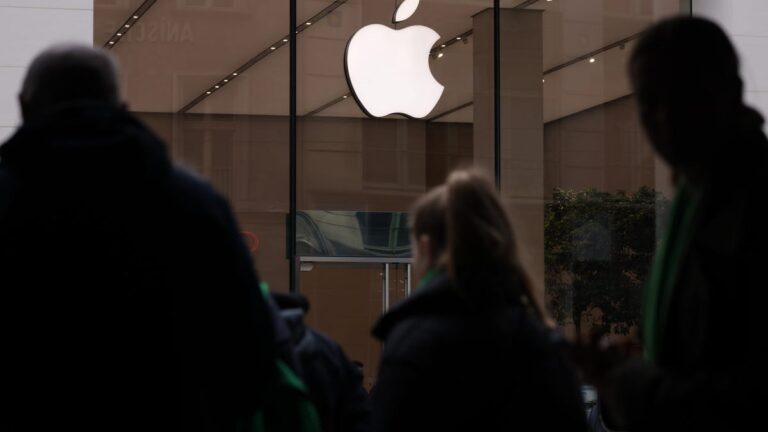An Apple Store in Berlin, Germany, March 25, 2024. Photo: Sean Gallup (Getty Images)
Apple’s artificial intelligence features may not be available to millions of customers in the European Union this year due to concerns about the EU’s regulation of digital markets.
Apple has fixed several security issues in its devices this year.
The company said on Friday that it “does not intend” to roll out Apple Intelligence, iPhone Mirroring and SharePlay Screen Sharing to EU users this year due to “regulatory uncertainty brought about by the Digital Markets Act (DMA).”
The DMA regulates large digital platforms to ensure fairness and competition in the EU market. Under the DMA, “gatekeepers,” or large platforms that provide digital services, are prohibited from competing using data collected from third parties, and other “dos and don’ts” that they must comply with. Apple said that complying with the DMA would affect privacy and security.
“Specifically, we are concerned that the DMA’s interoperability requirements may force us to compromise the integrity of our products in ways that put our users’ privacy and data security at risk,” an Apple spokesperson said in a statement shared with Quartz. “We are committed to working with the European Commission to find a solution that allows us to provide these features without compromising the safety of our EU customers.”
Meanwhile, Apple Intelligence will be available later this summer to beta testers who have their Siri language set to US English.
Meanwhile, Apple is reportedly seeking partners in China to roll out AI capabilities in the company’s second-largest iPhone market. OpenAI’s ChatGPT, which Apple has integrated into its latest iPhone, iPad and Mac operating systems, is not available in China, like other AI models developed outside of China.
Apple has reportedly discussed deals with Chinese AI developers, including Baidu, Alibaba, which developed Ernie Bot, a Chinese version of ChatGPT, and Beijing-based startup Baichuan AI. The Cyberspace Administration of China requires AI models to undergo a “security assessment” before release, and says content generated by chatbots “must reflect core socialist values and not attempt to subvert state power.” As of March, the CAC had approved 117 generative AI models, but none were developed outside China, according to The Wall Street Journal.


